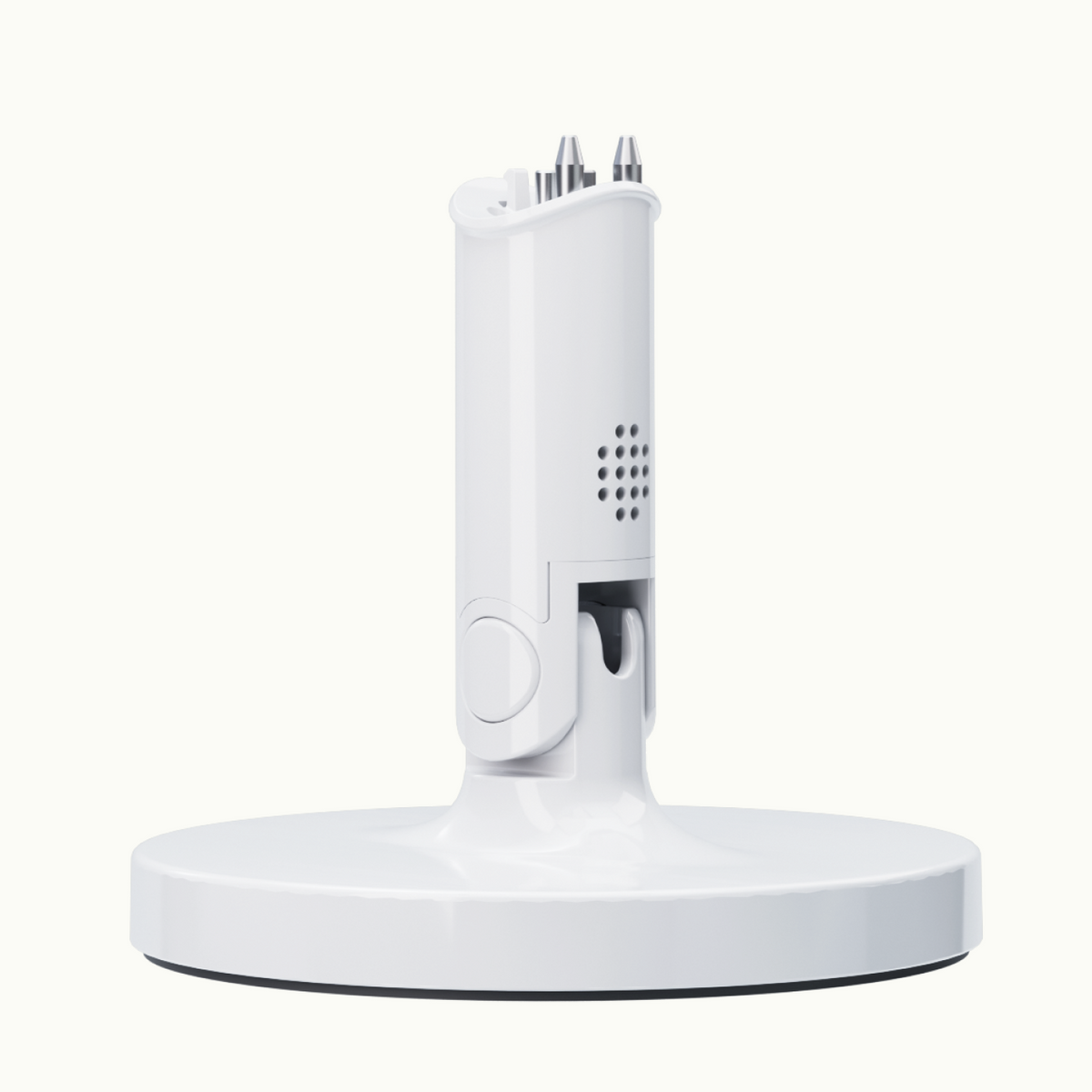Parenthood is an incredible journey, but it’s also really overwhelming. For new parents, especially, navigating the endless stream of conflicting advice, coupled with sleepless nights, and constant firsts - it often feels like every time we think we’ve got “it,” it totally changes.
That’s why Nanit is thrilled to bring you our Parent Like a Pro Summit, where Nanit’s experts and ambassadors come together for curated conversations about sleep, parenting, and more. Think of it like that expert best friend in your ear who’s got the answers to your most profound questions before you even know what to ask.
In this session, get the key takeaways from sleep expert Dr. Sujay Kansagra (@thatsleepdoc), in conversation with Dr. Maristella Lucchini from Nanit Lab. He discusses evidence-backed tips for parent and prenatal sleep as well as baby sleep across the spectrum, from newborn through the toddler years.
Adult Sleep
On the differences in sleep for men and women
“On average it appears that women tend to need a bit more sleep than men. They’re also waking up more in the middle of the night for many reasons, but particularly during their 20’s and 30’s, they’re bearing the brunt of waking up with their babies or children more than men. They’re also at higher risk of having insomnia.”
On respecting our natural sleep rhythms
“All of us have an innate chronotype, in that everyone has a natural inclination to fall asleep at a certain time. It’s dependent on genetics and age. In young adulthood, we have a shift towards night hours. In our later years, we tend to be early birds. You can figure out your natural chronotype by taking a test online to help you see patterns and better understand your unique needs.”
On dealing with insomnia
- Limit time in bed. If you aren't able to fall asleep after a while, get up for a bit and do a calm activity, then try again in a bit.
- Try paradoxical intent. Rather than asking yourself "Why can’t I sleep?" think about calmly laying there awake, and being totally comfortable with being awake. Paradoxically, that can help folks calm down and fall asleep.
- Journal before bed (or anytime). Let it flow and jot down 2-3 minutes of things that are on your mind to download your brain before sleeping.
- Don't be afraid to seek help from a sleep specialist.
On revenge bedtime procrastination for parents
“There’s this idea that we need to get time back - that we gave our time all day to work and children. Then we take time for ourselves out of our sleep time. My goal is for your children to sleep at a time where you actually get multiple hours on your own, especially if your kids are babies and toddlers. Everyone wins with more sleep. There’s no cheating sleep.”
On the importance of consistency
“Babies that sleep the best are those that have a consistent bedtime, and that applies for us as adults. The more we go to bed at the same time, the more our body understands it. So consistency is key. Our bodies love a 24 hour cycle. So when you keep your body in that pattern, you’ll find it’s easier to sleep and wake up - for all humans.”
Tips around infant sleep from 0-6 weeks
“The first six weeks are a circus. Parents often say that their child has their days and nights flipped. But it turns out that children don't know what days and nights even are, because they don't have that circadian rhythm they're relying on. In utero, they had mom's melatonin and now they're out and not making any of their own. So they’re just waking and sleeping based on their hunger cues and really nothing else.
In these few weeks, keep a routine and practice good sleep hygiene as best you can. The routine isn’t as much for your baby right now, but it’s good for you as an adult, and it adds order to the chaos.
It’s also a time to accept help. Whether you’re a mom or a dad, if you’re anxious or sad, there are resources for you. Your OB/GYN and pediatrician are resources to get help you need. It can be a really challenging time. And remain optimistic. It will get better.”
On sleep strategies from six weeks to four months
“Six weeks to four months is still typically too early to formally sleep train, but you can continue to work on those good sleep hygiene habits. This is also the age where your child might have a drowsy period and it’s almost bedtime, so try to put them down in their safe sleep space while they're drowsy so they can try to practice some of those self-settling techniques. This can help set you up for success later on.”
From four months to beyond
“By the time your child hits four months, it's nice to shoot for about a two hour window if you can - from the timing of last nap until bedtime. Wake windows can vary a lot from child to child, but if you're aiming for at least two hours awake before bedtime, you're usually setting yourself up for helping your child build up that sleep drive and be sleepy when it's bedtime and hopefully get a good few hours stretch.
At about four months onward, you can implement a lot of the behavioral techniques for sleep training or sleep success. My 10,000 feet view is that nobody has to sleep train. This is a parenting choice and there's nothing out there that says you have to, or you're destined to have a terrible sleeping baby if you don’t. But I will tell you that the data overwhelmingly supports the safety and efficacy of behavioral approaches to sleep success strategies.
Research shows that sleep training is a safe and effective option that has clear short and medium term benefits, including sleep continuity and maternal mood scores. Attachment can actually improve if everyone is sleeping better. But it is a parenting choice. If you don't want to, you don't have to do it.”
On setting limits with toddlers
“Toddlers are little geniuses. They're so smart and they know exactly what to say and what to do to try to delay bedtime. To help make bedtime (or getting them back to bed) easier, focus on limit setting–there are multiple ways to enforce boundaries. The key is to be 100% consistent and 100% persistent with the approach you choose.”



